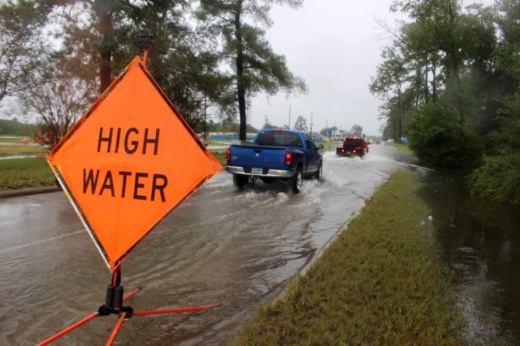County commissioners signed off on a $2.5 million contract April 28 with the Missouri-based engineering firm Black & Veatch Corp. to look into the size and effectiveness of a tunnel at various locations in Harris County. Black & Veatch is the same firm the county brought on board to complete the first phase of the study, which involved confirming that local soil could support a tunnel and that a tunnel would be capable of moving enough storm water to make a difference during floods.
Although many details have yet to emerge, the tunnel has the potential to be a game-changer in the county's flood control strategy, said Scott Elmer, director of operations with the Harris County Flood Control District. However, it also has the potential to cost billions of dollars, he said.
"It’s one of those items we are trying to push, but because of the importance and the price tag, it’s an item we have to go into with a lot of good consideration to make sure we are good stewards of the public trust," Elmer said.
To kick off the next phase, Elmer said engineers will identify the top three to five potential locations for the tunnel and will study the alignment, inlet and outlet locations, diameter, length and conveyance capabilities of each.
Buffalo Bayou and Cypress Creek have both been floated as potential locations in the past, but Elmer said researchers are not making any prejudgments. All options are on the table, he said, including a tunnel that ties into multiple watersheds or the determination that no tunnel should be built at all.
"It is possible once we start taking a look at specific routes that no route has a benefit above the traditional methods [of flood control]," he said. "We don’t expect that to be the case, but it’s always a possibility."
Based on early cost estimates, Elmer said it could cost about $1.5 billion to construct 10 miles of a hypothetical 40-to-50-foot diameter tunnel. Part of the second phase involves determining potential funding sources.
A big part of determining whether or not the county should move forward with a tunnel project is cost-effectiveness. If federal dollars are sought for the project, Elmer said the county will have to prove the reduction in damage the tunnel would provide is worth the cost.
"One of the factors is how many homes will be removed from the 1% flood plain," he said. "But there are other things. How long will major roadways be underwater? That’s a component that has a big economic impact. How long will people be out of their homes, not because they are flooded, but just not being able to access them?"
The second phase of the study is expected to kick off May 14 and last for about a year, Elmer said. The third phase, which will involve taking the viable alignments and developing preliminary engineering reports, could begin in 12-18 months, he said.
If the county does come up with some viable routes for a tunnel, Elmer said he believes support for the project exists among county leaders and residents alike.
"It will take significant political support and public support for something of this magnitude to be implemented," he said.





